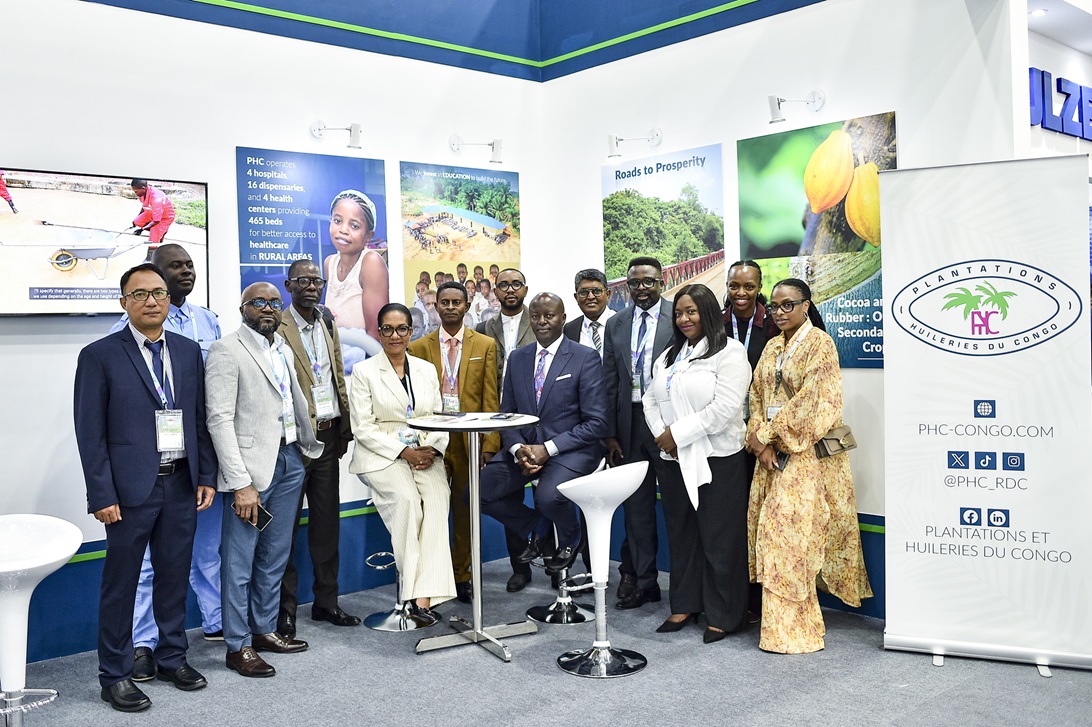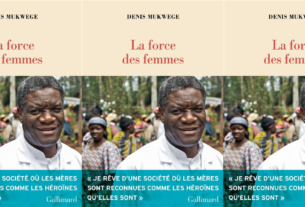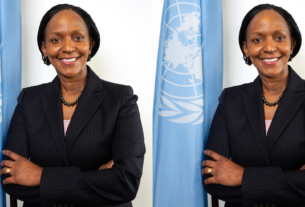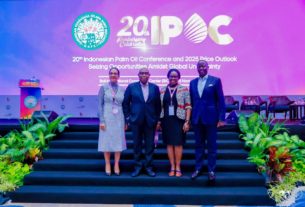As the Democratic Republic of Congo asserts its presence on the global agro-industrial stage, PHC is entering a new phase of development driven by innovation, technology transfer, and strategic partnerships. The expansion of its processing facilities, the construction of a new refinery, and the launch of a biogas unit are designed to modernize the sector and position the DRC as a key player in sustainable palm oil.
The Democratic Republic of Congo made a strong impression at the Palm Oil International Congress and Exhibition (PIPOC 2025). Plantations et Huileries du Congo (PHC), the country’s leading palm oil producer, proudly represented the nation at this major event held from 18 to 20 November by the Malaysian Palm Oil Board (MPOB) in Kuala Lumpur.
Heading the Congolese delegation was Monique Gieskes, Managing Director of PHC, accompanied by Wale Adeosun, President of Kuramo Capital Management and majority shareholder, along with associates Shaka Kariuki and Kamal Pallan.
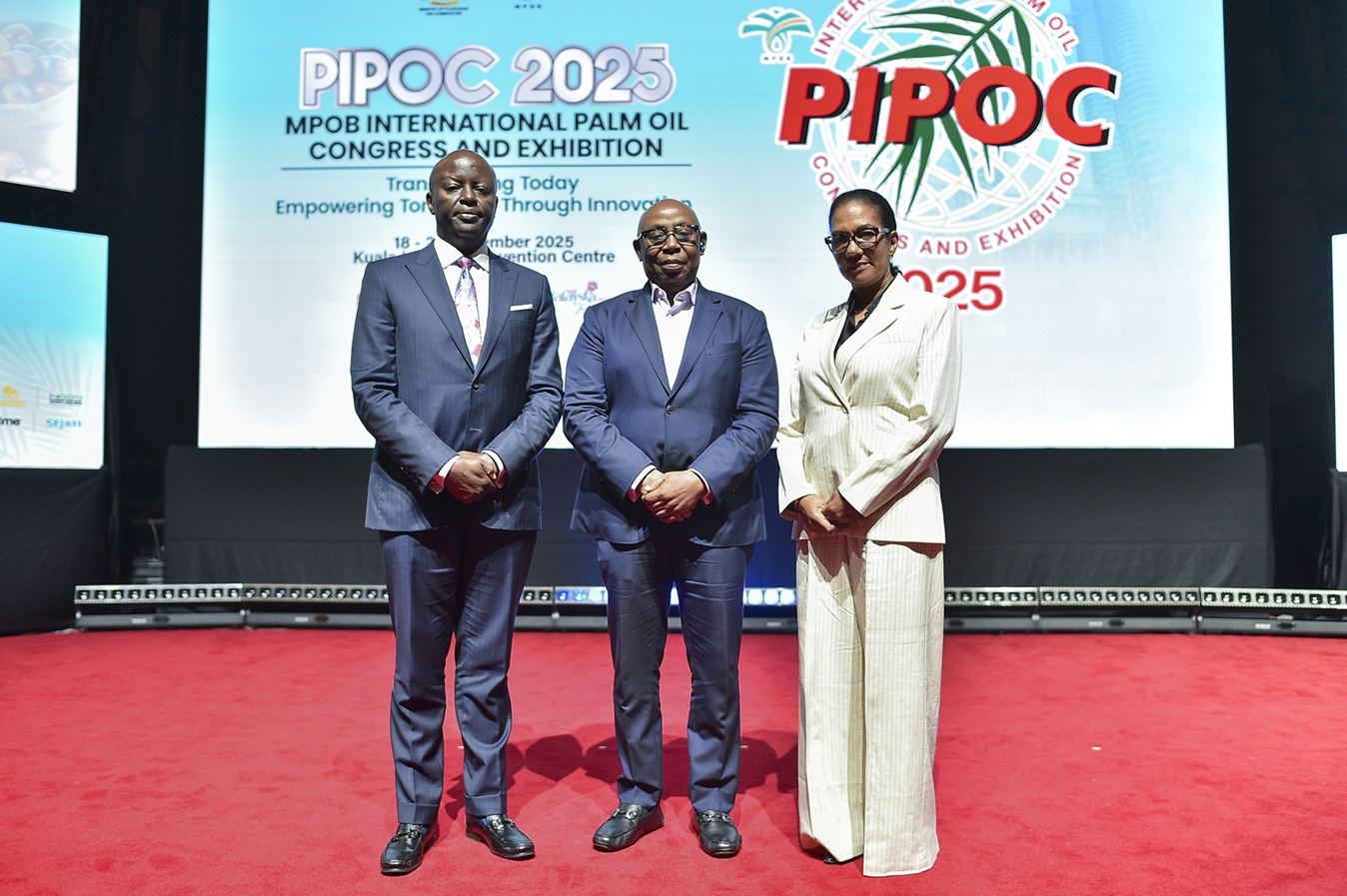
Before an audience of international experts, PHC reiterated its ambition to restore the DRC to a central position in the global sustainable palm oil sector. During the Global Economics and Marketing (GEM) conference, Monique Gieskes delivered a widely noted address titled “Transforming Agriculture for Inclusive Growth in the DRC.” She outlined the pillars of PHC’s revamped agro-industrial model: responsible replanting, optimized land management, empowerment of women and youth, and a strengthened socio-economic footprint in rural areas.
She also highlighted the decisive scientific contribution of the DRC to the history of palm oil. From the discovery in Yangambi of the Dura × Pisifera hybrid (now the global benchmark for productivity) to the development of the Mongana Report, still considered an international reference for palm oil extraction, Congo, she reminded, has played a crucial role in shaping the modern industry.
“The DRC is the birthplace of oil palm. The Dura × Pisifera hybrid was born here. The Mongana Report, also of Congolese origin, is still used around the world,” said Monique Gieskes.
She underscored that the DRC’s exceptional agronomic potential, combined with its vast arable land and a young, skilled, and available workforce, makes the country one of the most attractive destinations for investment in sustainable palm oil:
“Congo has its rightful place on the world map of oil palm. With our immense human and natural potential, we call on investors to seize the opportunities offered by the DRC. Congo is the next frontier of palm oil,” she added.
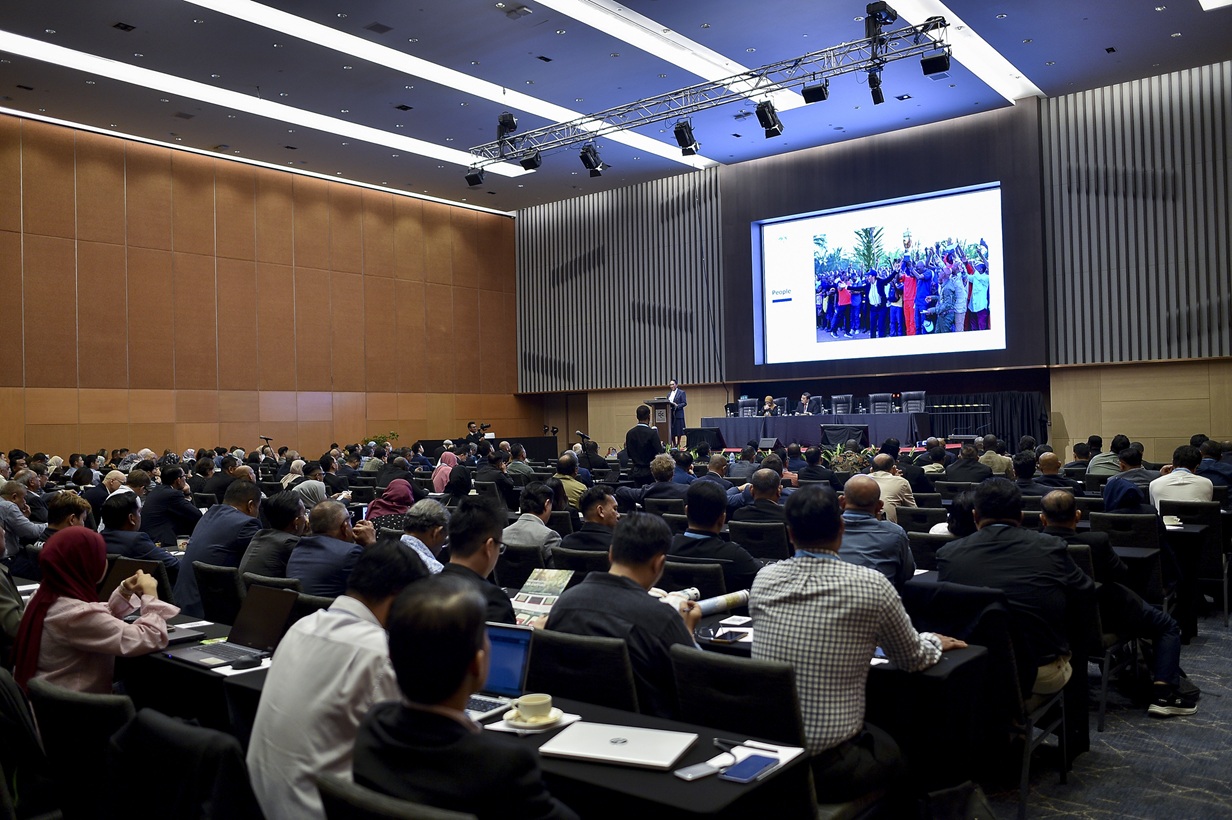
CPOPC Membership: A turning point for the congolese sector
The DRC’s official entry in March 2025 into the Council of Palm Oil Producing Countries (CPOPC) marks a decisive strategic milestone—an achievement strongly supported by PHC. This membership places the DRC at the center of global discussions on sustainability, innovation, and sector competitiveness.
“Joining the CPOPC opens new opportunities: knowledge exchange, technology transfer, and stronger synergies between Asia and our country. It sends a powerful signal to investors,” emphasized Monique Gieskes.
Since joining, two major initiatives have been launched: a CPOPC technical mission to support the Ministry of Agriculture in aligning national strategies with international standards, and a training program on Good Agricultural Practices (GAP) held in Yaligimba for smallholders.
“PHC reaffirms its commitment to supporting upcoming initiatives under this collaboration between the Congolese Government and the CPOPC,” concluded the Managing Director.
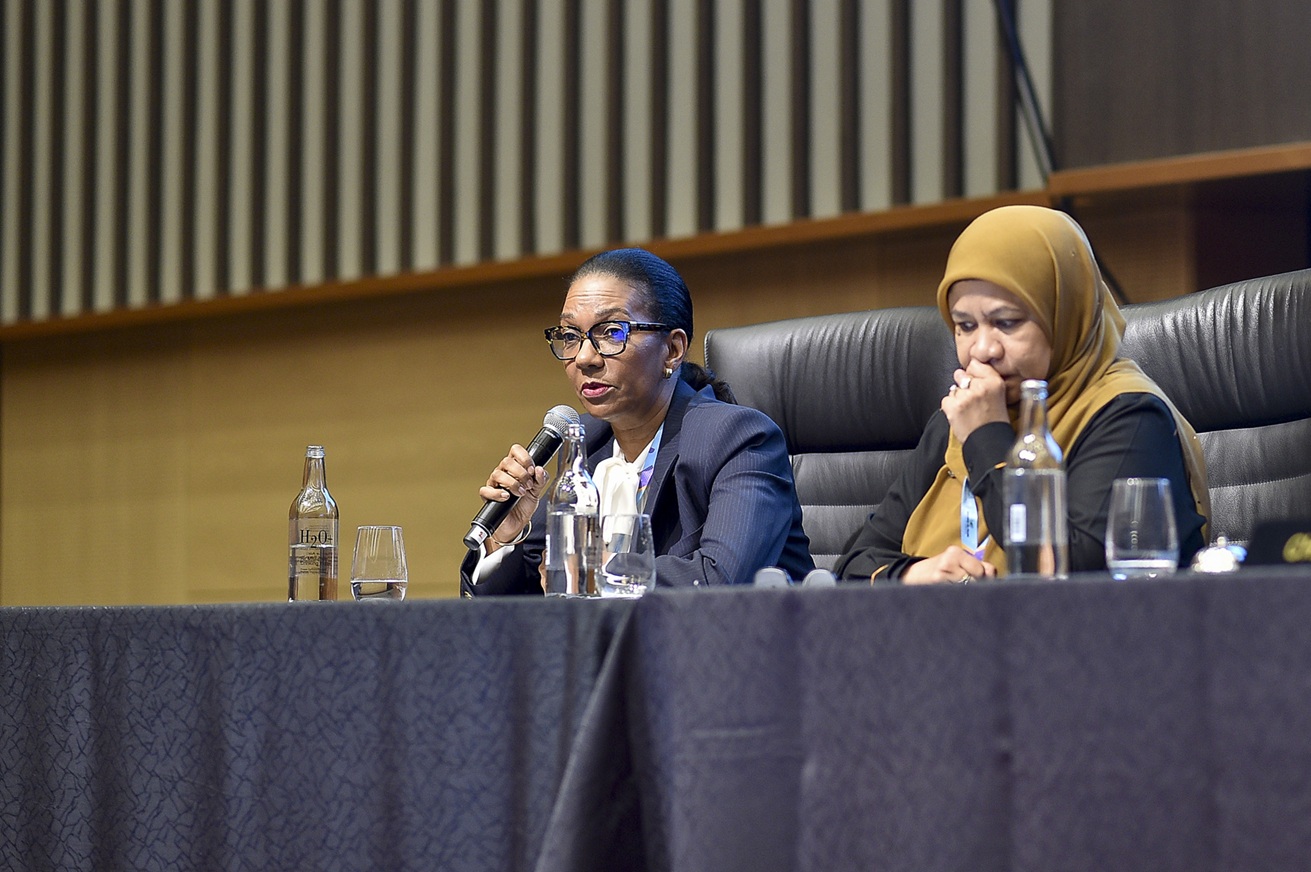
A deep and measurable internal transformation
Since 2020, under the leadership of Kuramo Capital Management, PHC has embarked on an ambitious restructuring. With a management team now 100% Congolese, the results have been striking: palm oil production has tripled-a 200% increase-while operational costs have been cut by half.
With more than 10,900 employees, PHC has become the largest private employer in the DRC. Female representation has risen significantly, from 4.1% to 16%, and the company enforces a strict zero-deforestation policy, limiting replanting to already-exploited concessions.
PHC’s social impact is equally noteworthy: its 4 hospitals, 4 health centers and 18 clinics provide care to nearly 150,000 people. Meanwhile, the 40 schools built across its sites educate more than 10,000 students. Through PHC Academy, over 1,200 employees have been trained in four years, strengthening internal expertise and professionalizing the sector.
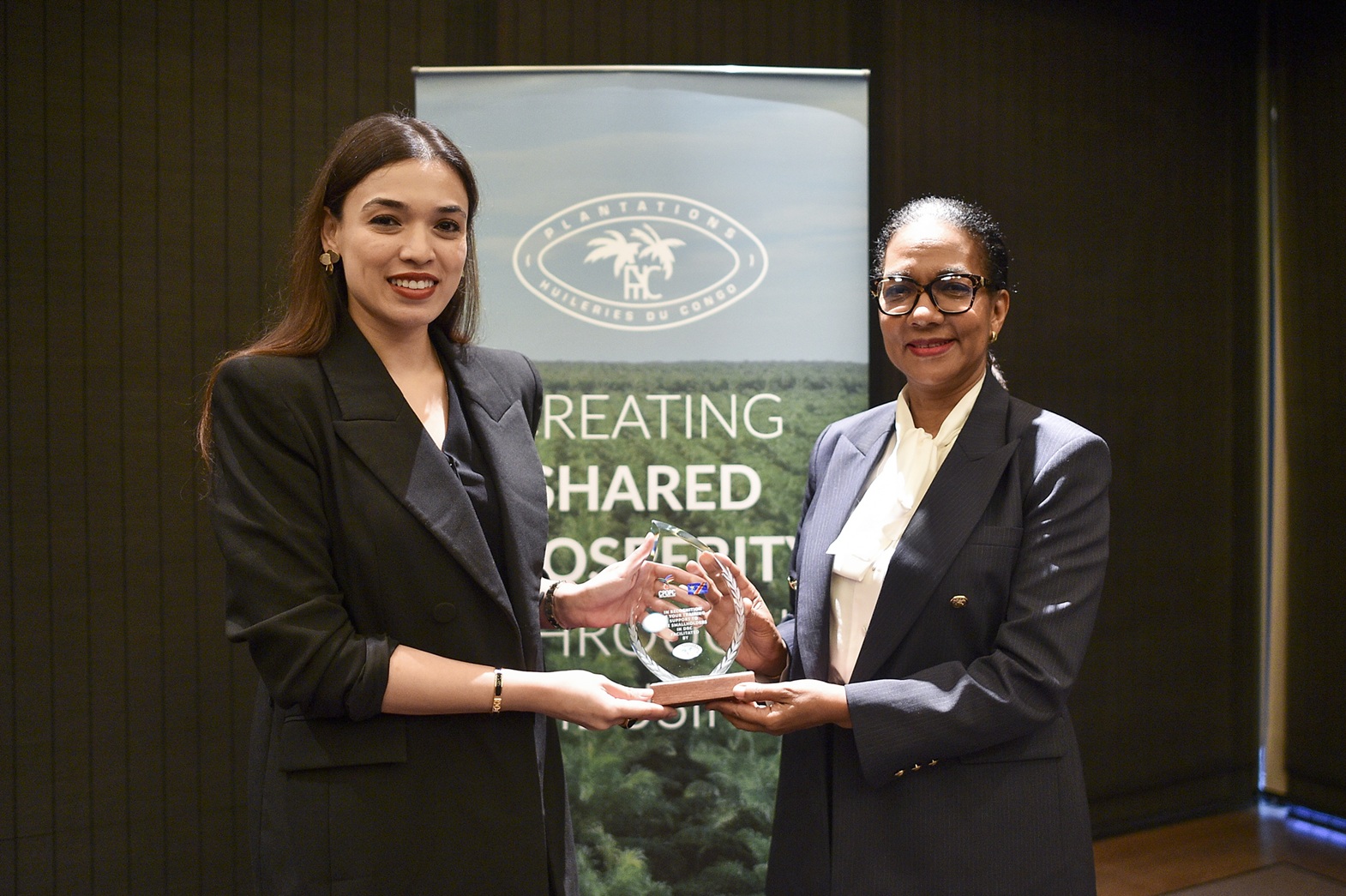
A focus on innovation, partnerships and sustainable growth
PHC is preparing for a new stage of development with a clear objective: accelerate modernization and reinforce its leadership in the palm oil value chain. Three key drivers will guide this transformation—agronomic innovation, technology transfer, and strategic partnerships—each designed to enhance the company’s competitiveness.
To support this vision, PHC is planning major investments: expanding its processing plants, building a new refinery, and creating a biogas unit capable of converting agricultural waste into renewable energy.
By actively participating in PIPOC 2025, PHC reaffirms its commitment to driving responsible transformation within the sector and strengthening the DRC’s strategic position in the global agro-industrial economy.
